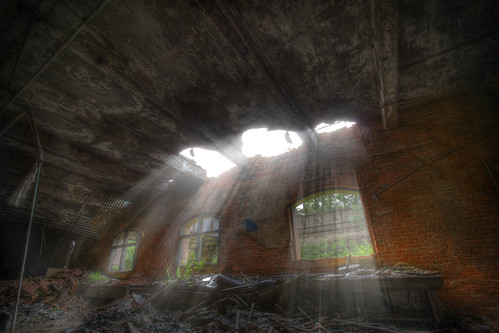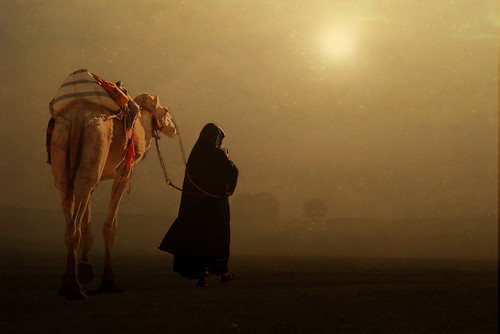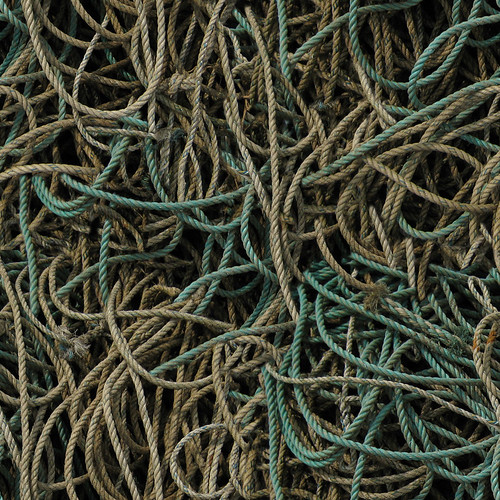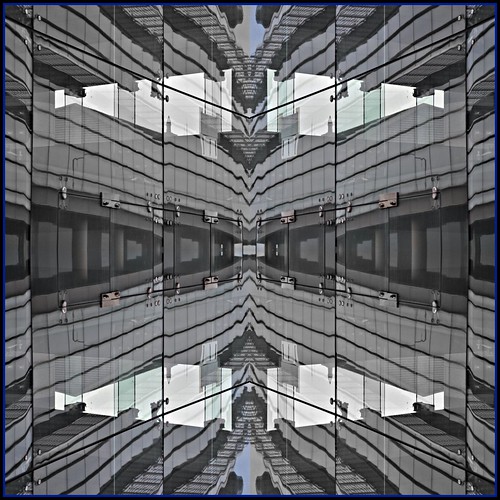
by Daniel Doen Silberberg | Dec 16, 2010 | Uncategorized, Zen

Every day is an opportunity to grow, to develop. When this is clear to me, when it is in the forefront – life is a challenge, an adventure.. There is so much we can do with the days blank canvas to develop ourselves. But we don’t do that instead we are mechanical, on automatic pilot. We spend so much valuable time worrying or afraid, limiting ourselves. Doing the same things, having the same feelings and hoping that it will change.
Perhaps the most common mechanical manifestation is the role of the victim. We tell ourselves that things are happening to us, that its not us creating them, or allowing them – either things are just happening that we can’t do anything about -or things we want to happen just can’t.
The historical Buddha was a lifehacker. Lost Coin is part of his hacker lineage. Shakyamuni Buddha – I like to think of him as Sam to underline that he was just like you and me (the ancient teachers in our lineage said when you say the word Buddha you should wash your mouth out with soap). So Sam took on an incredible set of problems – old age, desease and death and he tried to hack them with all the available means. Eventually he succeeded with a combination of zazen and a method of practice called the eightfold path. But he had to really decide to do it and that he could do it.
The amazing thing is that even if we have been afraid, procrastinating or being the victim it can all change in one moment. We are capable of a complete shift and then what we need is to practice, hack the mechanical patterns – the defaults. Today would be a good day to make that shift. It takes one bold step. That step always happens now.
photo credit: country_boy_shane

by Daniel Doen Silberberg | Dec 5, 2010 | Uncategorized, Zen

In developing Lost Coin, what I hope we can do is create a culture. I believe this is close to what Shakyamuni Buddha wanted to do in his time. I hope this culture forgoes prejudice and superstition and, instead, relies on what is provable and at the same time is deeply rooted in the humility of what we do not understand.
Toward that end, I believe we can look at science and Zen as two sides of the same Lost Coin. Through science we can see we are connected to everything. A human and a tree share a common ancestor. We have the stuff of stars in our bodies. On the other side, by the experiential and verifiable method of zazen, we see the field of consciousness from which all thoughts and understanding arise. Science shows us the small transient speck we are in the limitlessness of reality. Zen reveals the absolute consciousness teach one of us possesses that encompasses everything.
We can build a culture of intelligence and consciousness that reveals our identity with all things. Both science and Zen embrace the unknown rather than simply “making believe” that we understand what we do not. Reason and “no mind” are two valuable parts of the mind- they are the two hands of knowledge. A culture that embraces them both may finally help put an end to the medieval thinking that still exists and be the start of a wondrous journey into our real potential.
 photo credit: net_efekt
photo credit: net_efekt

by Daniel Doen Silberberg | Nov 20, 2010 | Uncategorized, Zen

On the great road of Buddha ancestors there is always unsurpassable practice, continuous and sustained. It forms the circle of the way and is never cut off. Between aspiration, practice, enlightenment, and nirvana there is not a moment’s gap; continuous practice is the circle of the way.
Dogen Zenji, Continuous Practice, Fascicle 1, Circa 1242, Fukakusa
The aim of practice is to free the body and mind, to return to the miraculous wonder of who we are and to manifest our realization in our life. This has always been the purpose of the teaching (dharma) and continues to this day.
In Lost Coin we call the manifestation of the power of practice: excellence.
In former times training occurred in the context of a monastery. What makes Lost Coin “modern” and unique is its emphasis on carrying out this training in the context of daily life.
A part of this that I would like to focus on is training positions. Training for excellence and mindfulness(practice) was carried out in the monastery by sitting (zazen) as well as assuming certain duties and responsibilities: anything from being the cook (tenzo) to the administrator (kanin). There were also positions that put people in close touch with the teacher and afforded close personal training. One of these positions is the teacher’s personal assistant (the jisha). These training positions are an opportunity to really accelerate one’s practice and work towards excellence, but they must be undertaken with a clear understanding and aspiration. They are more potent than coaching. They are training in action. They are not something to figure out. They require the desire to overcome obstacles as well as the ability to fail and keep going.
There is an old saying: seven times down, eight times up. This saying is the spirit of the Way. If you wish to take this journey (the Way), leave a lot of room in your backpack for courage. Then you will be able to pay back Master Dogen for his wonderful teaching of unsurpassable practice, continuous and sustained.
 photo credit: Alain76
photo credit: Alain76

by Daniel Doen Silberberg | Nov 6, 2010 | Uncategorized, Zen

Huang Po or in Japanese, Obaku, is one of the Great Ones. I have been reading The Zen Teaching of Huang Po for nearly 40 years. Little is known of his life, but texts traditionally give his death some time between 847 and 859 A.D.
I am going to pick just one section from The Zen Teaching of Huang Po which was translated by John Blofeld in 1958. I will divide this section into two or three posts and add some commentary to each. His words really need no commentary, but I hope my comments are useful. My commentary will probably fall into the category known in Zen as ” spreading shit on the clean-driven snow”. However, this is also true of Huang Po’s words, so I have put myself cleverly in good company.
If you would spend all your time – walking, standing, sitting, or lying down – learning to halt the concept-forming activities of your mind, you could be sure of ultimately attaining the goal. Since your strength is insufficient, you might not be able to transcend samsara (illusion) by a single leap; but, after 5 or 10 years, you would surely have made a good beginning and be able to make further progress spontaneously. It is because you are not that sort of man that you feel obliged to employ your mind ‘studying dhyana (dharma)’ and ‘studying the Way’. What does all that have to do with Buddhism?
So it is said that all the Tathagata (The Buddha) taught was to convert people; it was like pretending yellow leaves are real gold, just to stop the flow of a child’s tears; it must by no means be regarded as though it were ultimate truth.
Commentary: Huang Po raises the flag of the true Dharma eye high. He draws a line below which all speculation, intellectualism, and conception fall and above which the empty mind of the Way begins. Can it be as simple as this? The answer is: yes, it can. But don’t be deceived: it is simple, but hard, very hard and requires an on-going, inexhaustible spirit.
photo credit: Nina Matth ews Photography
ews Photography

by Daniel Doen Silberberg | Oct 31, 2010 | Uncategorized, Zen

“Sit, be still, and listen,
because you’re drunk
and we’re at
the edge of the roof.”
This quote by Rumi is difficult to add to. But I find it so amazing that I’m going to try. We seem to be filled with our own thoughts and agendas. We don’t originate those thoughts or the agendas, yet they drive us. They are mechanical and we act them out like a machine or sleepwalker. Rumi is suggesting that we might want to wake up and that we might want to do it before we fall off the roof. As I like to say “If only, if only, if only – dead.
Rumi is saying we are asleep, drunk. Just a few minutes of being awake in the beautiful unknowable world. What is it worth? How much we might experience and be able to do if we weren’t drunk.
He gives us the key to all of it. Sit, be still and listen. In addition to that we can practice not being asleep/drunk in our daily lives. These actions create a powerful practice. That practice is transmitted from one person to another, handed down through time for those of us who are not completely drunk. We can act on that esoteric or special knowledge. It takes courage and making up our minds.
The edge of the roof is in sight.
If only, if only, if only – dead.
photo credit: h.koppd elaney
elaney

by admin | Oct 27, 2010 | Uncategorized, Zen

Sensei’s Wonderland:The Zen of Alice, published by Parallax Press has received yet another accolade. It is a finalist in the 2010 Best Books Award in the general spirituality area. Congratulations to Sensei for continuing recognition of a talented and substantive book that goes “down the hole” with Lost Coin teachings.
Check it out the awards site at www.usabooknews.com/bestbooks2010
 photo credit: marfis75
photo credit: marfis75

by Daniel Doen Silberberg | Oct 16, 2010 | Uncategorized, Zen

We bind ourselves without a rope. What that means is that we are free and perfect just the way we are, but we feel somehow bound.
There is nothing we lack, but we feel something lacking.
So we may choose to “practice” in order to feel that freedom and perfection in our life: in our relationships, careers, and our pursuits.
To practice and to realize our freedom requires great commitment and effort.
So isn’t that just another way of tying ourselves up?
No, it isn’t – when we truly commit to excellence in our pursuits, to the integrity of our lives, we have chosen our “way” and are completely free.
It’s not exactly that there is no rope. It’s that we become the rope. If we are the rope, is there a rope?
 photo credit: aubergene
photo credit: aubergene

by Daniel Doen Silberberg | Oct 10, 2010 | Uncategorized, Zen

Many people understand “being in the now” as what Zen is all about. First of all, everyone is” in the now” all the time, anyway 🙂
The real problem is in the understanding part of it.
You can have a great life, accomplish all you want and discover who you really are without knowing what its all about. I mean lets get real -who does? In fact, understanding can make it harder to be “in the now”. Understanding limits you. Understanding limits your understanding.
Werner Erhart, founder of EST , now known as The Landmark Forum: www.landmarkeducation.com/once said “In life, understanding is the booby prize.”
Am I advocating a certain kind of stupidity?
I certainly am. It’s a kind of stupidity that can set us free.
 photo credit: U-g-g-B-o-y-(-Photograph-World-Sense-
photo credit: U-g-g-B-o-y-(-Photograph-World-Sense-
by admin | Oct 7, 2010 | Uncategorized, Zen
Reset: Where We Are Stuck And What To Do About It
Lost Coin is offering a special weekly email series of 4 videos by Doen Sensei. These videos are a short course in the ideas and practices of Lost Coin Zen. They will allow you a glimpse of the depths of this practice and how it can help you create excellence in your daily life.
Sign Up For Your Free Subscription

by Daniel Doen Silberberg | Oct 2, 2010 | Uncategorized, Zen

Imagine that there is a television screen and a large number of sneakers are scampering across it. The screen is crowded. That screen is our mind and the shoes are our endless thoughts. As we train and practice we can see the shoes slowing down. Sometimes, they slow down so much that we can see the screen itself.
Eventually the screen is what we see, rather than the shoes. The screen is really who we are. The shoes hide that.
Seeing the screen lets us cut loose from where we are stuck: all those familiar shoes. That translates into the ability to change both our actions and perceptions: to get unstuck. From that we develop the increasing ability to adapt to all kinds of circumstances.
This ability to adapt is the road to excellence and mastery. The Ancients called it The Way.
The fact that Darwin said adaptability is the key to survival and evolution is certainly no coincidence.
 photo credit: Ana_Cotta
photo credit: Ana_Cotta

![]()








Recent Comments